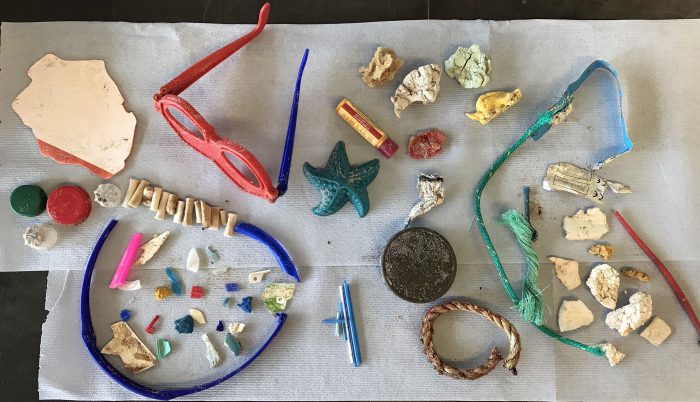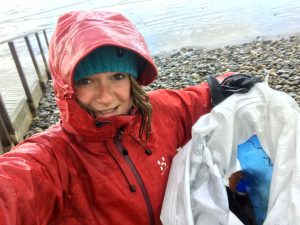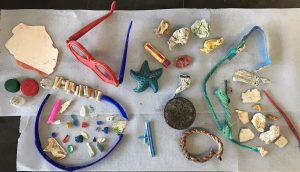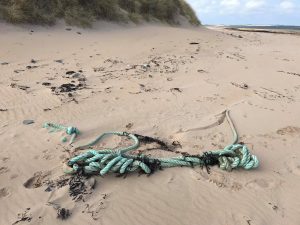Marine
Monitoring plastic beach litter
September 21, 2021 by Marine Scotland Communications 2 Comments | Category Collaborations, Marine Directorate Science, Marine Litter, Publications, Recycling Week
Beaches in the north east of Scotland were up to six times cleaner between 2019 and 2020 compared to previous surveys in the area, a new scientific paper has found.
The publication by scientists in the Marine Scotland directorate of the Scottish Government and Saltwater Life analysed the sizes and weight of plastic collected at surveys across 10 beaches to increase understanding of the sources of the litter.
The research used simple models to improve knowledge of how plastic items which break up at sea through fragmentation can end up on our beaches, as well as reviewing the weights of plastic items, which is different to usual methods of counting the number of litter items collected. It also considers the need to standardise monitoring programs so data can be compared and assessed between regions.
The surveys, which were carried out between September 2019 and August 2020 in areas ranging from Nairn to Aberdeen, collected 1,618 items, weighing 25,797g with 86.6% of that total being plastic. The paper, published in Frontiers of Marine Science, reported a median 15 litter items per 100m across the surveys, which is below the new Convention for the Protection of the Marine Environment of the North-East Atlantic (OSPAR) threshold of 20 litter items per 100m. It was also six times lower than a previous study of 222 surveys in the same area in 2017 which recorded a median 120 litter items per 100m.
Co-author Dr Bill Turrell said: “The study which is part of the Scottish Government’s marine litter research programme, showed that instead of just counting litter, weighing litter can provide better evidence of the impact of marine plastics in an area.
“Less public littering over the Coronavirus pandemic could have also contributed to our finding that beaches in the north east of Scotland were up to six times cleaner than previous surveys.
“The findings will help to provide a more standardised process for analysing litter so that governments, industry and communities can better understand the marine litter problem, and how best to tackle it.”
Further information
Monitoring plastic beach litter by number or by weight: the implications of fragmentation, by Lauren Smith, William Richard Turrell, published in Frontiers in Marine Science, section Marine Pollution.
Information about Scottish Government support for marine litter.
Tags: Beach, ecological monitoring, marine litter, Recycling Week






Interesting to see some of the findings especially that beaches may have been cleaner over the last 18 months as there was less public littering. Thank you
Beaches are cleaner in the last few years because there are more volunteers like me litter picking. I do it almost every weekend along the Fife coast and usually fill two 100 l bin bags with marine litter, plastic bottles and styrofoam. Much of the litter is already grown over by vegetation and plastic litter in dunes covered with sand. The long term impact of this must be horrendous. Nurdles turn up randomly at beaches often together with cotton buds. Last weekend I found thousands of nurdles at Ruby Bay, Scottish Wildlife Trust Reservoir. The problem with litter picking is that we shift the plastic from one place to the next and where does it all go then? Most is not recyclable which means it will stay in the environment. We need a real shift in businesses, agriculture, fishing to prevent more plastic pollution.